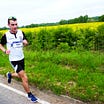There appears to be an annual enthusiasm reserved every year for the Tour of Flanders, a unique ‘ambience’ which owes its origin to the historical disregard and discrimination once held by the French-speaking government towards the region. It’s an enthusiasm that taps deeper into Flandrian culture and history, and can be perceived through a variety of d…
Keep reading with a 7-day free trial
Subscribe to derailleur to keep reading this post and get 7 days of free access to the full post archives.





